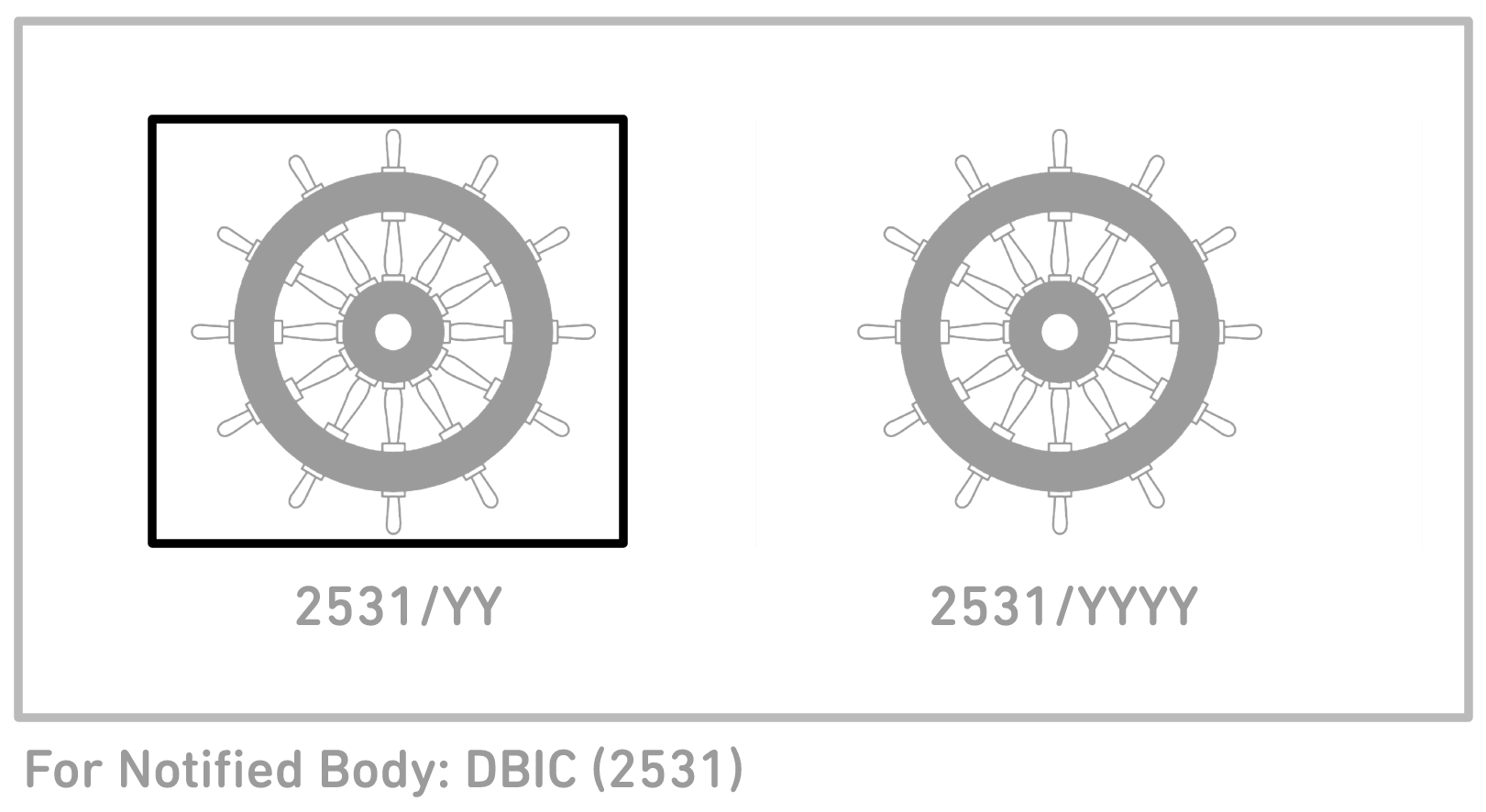


Short text about what the Q&A contains and where they can turn if they don't get the answers they need here.
While most EC directives require products to carrying the "CE" mark, products certified under the Marine Equipment Directive carry the "wheel mark".
The directive covers types of marine equipment that fall under following International Conventions developed by the International Maritime Organization (IMO):
Design, construction and performance requirements and testing standards for marine equipment is provided in the latest Annex to Commission Implementing Regulation, which was published in the Official Journal of the European Union.
Yes.
The adequate analysis and assessment of the risk(s) is the responsibility of the
manufacturer.
In case the manufacturer evaluates that applicable standards cover all reasonably
foreseeable risks, the manufacturer should simply declare this in the technical
documentation.
This ensures that the risk assessment requirement (in Annex II, Part I Module B: EC Type-
Examination, point 3, third indent) is fulfilled.
In case the manufacturer evaluates that the applicable standards do not cover all reasonably
foreseeable risks, the manufacturer should identify and analyse the risks and describe the
measures taken to address them.
The Notified Body involved verifies that the technical documentation addresses a risk
assessment.
1. No … (unique identification of the product):
2. Name and address of the manufacturer or his authorised representative:
3. This declaration of conformity is issued under the sole responsibility of the manufacturer (or installer):
4. Object of the declaration (identification of product allowing traceability. It may include a photograph, where appropriate):………………
5. The object of the declaration described above is in conformity with the relevant Community harmonisation legislation: ………………
6. References to the relevant harmonised standards used or references to the specifications in relation to which conformity is declared:………………
7. Where applicable:
8. Additional information:
The product shall be wheel marked at the end of the production phase. The wheel mark shall be followed by the number of the notified body which was issuing Module D/E or F/G and the year of production.
The wheel mark shall be affixed visibly, legibly and indelibly to the marine equipment/ product or to its data plate and where relevant, embedded in its software. Where that is not possible or not warranted because of the nature of the product, it shall be affixed to the packaging and to the accompanying documents.
Illustration

Furthermore, manufacturers shall ensure that their products bear a type, batch or serial number or other element allowing their identification. In addition, they shall indicate their name, registered trade name or registered trademark and the address at which they can be contacted on the product.